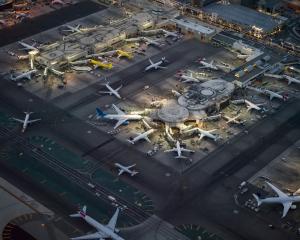Stark challenges lie ahead for Burma if it is to establish itself as a stable democracy, Joshua Riddiford writes.
Burma's transition toward "something resembling a democracy" led The Economist to dub it "country of the year" in 2015 but huge challenges still lie in front of the country if it is to become an enduring democracy.
Free and fair elections held in November, in which Aung Sang Suu Kyi's National League for Democracy received an overwhelming 77% of the popular vote, fuelled optimism the country might be headed toward more open political institutions. This followed an earlier move to a civilian government (although one not democratically chosen) in 2011 after nearly 50 years of rule by a military dictatorship.
Gradual liberalisation of media from state control, as the BBC observed in a country profile last year, suggests a greater openness after years of military-imposed control of media within the country.
Significant amounts of foreign direct investment (FDI) and corresponding foreign influence in recent years also help push the country towards more transparent institutions. However, while FDI is likely to be a significantly positive force for the country in improving standards of living and moderating political action, it comes with challenges as the country's infrastructure needs to be overhauled to match the demands of a modern economy. Despite forces pushing towards greater openness, there are practical challenges. Not least is the willingness of the military to share power with Ms Suu Kyi's democratically elected government. The military, which still retains 25% of seats in the national parliament, is resisting the suggestion Ms Suu Kyi could become president. Negotiations continue between army chief Min Aung Hlaing and Ms Suu Kyi.
The military earlier objected because of a constitutional provision, ostensibly written to disadvantage Ms Suu Kyi, whose husband and two sons are British citizens, prohibiting anyone with close family members who are foreign nationals from becoming head of state. Three-quarters of the legislature must support a change to the constitution and since the military holds a quarter of seats, it holds a veto over a change to the rules.
Supposing this was overcome, the challenges for democratic institutions to fully take root would be far from over.
The process of casting a ballot is but one small component of a framework of open democratic institutions. The remark, attributed to Thomas Jefferson, that "the price of liberty is eternal vigilance" seems apposite when we observe moves toward tighter control in recently democratised states coupled with the status quo inertia apparent in western democracies facing steep fiscal challenges.
Free and fair elections are no panacea for social ills but, coupled with corresponding institutions such as a free press, open markets and pre-eminence of the rule of law as a means for settling disputes, democracy proves a robust political structure.
The transition from a military-led, closed type of political framework to a democratic and open one must occur in gradual fashion. Swift overhauls of institutions without establishing a new framework to supplant those institutions has resulted in unstable democracies, most strikingly in the Middle East, in recent years. As Foreign Affairs magazine observed last year, this is a particular concern for Ms Suu Kyi's NLD party, many of whom have little education and, given the military junta's historical tight grip on power, no experience of operating a large bureaucracy.
Good governance is not the sole reason the NLD should be open to working with the military power-holders. American political scientist Samuel Huntington noted, in a 1991 essay, that reversion to authoritarianism typically occurred through coups which reaggregated power within the hands of the military.
Nascent democracies, therefore, must soften their democratic transition and maintain ties with military power-holders lest the risk of such a reversion becomes manifest. Francis Fukuyama, recent author of Political Order and Political Decay, has argued
it was weak state formation which accounted for the failure of democracy to properly take root in places such as Libya following the so-called "Arab Spring". Burma's government must also be accepted as holding legitimacy in the manner it dispenses power. The country needs to elevate the rule of law as a check on arbitrary decision-making. This means decisions taken on the basis of a legal framework rather than through the payment of bribes or other corrupt measures. The "rule of law", a phrase Ms Suu Kyi has frequently invoked on her rise to power, is much needed in a country which Transparency International ranked 147th out of 168 countries in its corruption perceptions index produced last year. Furthermore, a 2014 survey led by the UN found corruption to be the greatest concern for businesses operating in the country.
Establishing a democratic norm is more complicated than simply allowing people to vote for their candidate of choice. For Burma to maintain democratic institutions, the state must dispense power in a legitimate fashion, elevate the rule of law and introduce a necessary framework to encourage economic growth. Yet it must do so in a fashion which builds on the existing institutional framework provided by the military without simply casting it aside. Serious challenges and uncertainty lie ahead for this small southeast Asian country.
● Star reporter Joshua Riddiford holds a master's degree in public policy and a bachelor of arts (honours) degree in political science and is a keen student of politics and international affairs.











